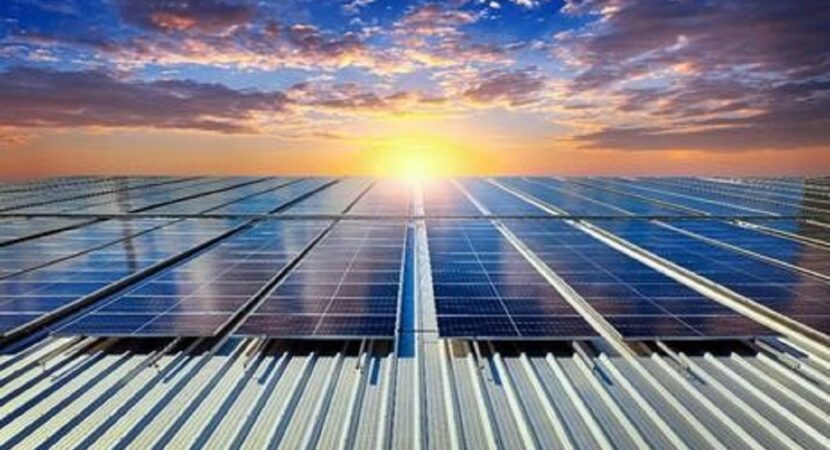
The expert explains that given the high demands required in industrial processes, companies in the sector have increasingly invested in renewable energies
The Brazilian industrial sector is considerable, contributing to GDP growth and influencing other markets. A study by the National Confederation of Industry (CNI) found that this industrial production sector is responsible for 20,4% of the Brazilian GDP, in addition to 69,2% of exports of products and services and more than 70% of company spending on R&D. (R&D).
According to the numbers, Brazilian companies also pay 33% of federal taxes (excluding SSI) and 31,2% of employer SSI contributions. The study also shows that for every BRL 1,00 produced by industry, BRL 2,43 is generated in the Brazilian economy, a higher added value than in sectors such as agriculture (BRL 1,75) and commerce and services (BRL 1,49), for example .
With such a broad representation, companies need reliable, high-volume production. As the daily presence of equipment in industries, such as motors, pumps and compressors, generates a significant demand for energy, contributing with up to 15% of operating expenses and, consequently, raising the price of final products sold, energy production and use is crucial in industrial processes.
Therefore, Brazilian companies are increasingly investing in solar energy as a more economical, safe and environmentally friendly alternative to traditional energy sources, in order to reduce energy costs, lower operating costs and reduce product prices, expanding its market share. harmful.
Repercussions of solar energy in the industrial production sector
The Energy Research Company (EPE) reports that, as of 2010, industrial use in Brazil was responsible for 32% of the country's total energy consumption, more than 40% of its energy used and 9% of its GHG emissions . However, the use of solar energy, which broke a record for installations in Brazil in September 2022, can help reduce this use. Installed electricity from photovoltaic solar sources in the industrial sector, including large-scale installations and self-generation systems, topped 20 gigawatts (GW), as reported by the Brazilian Association of Photovoltaic Solar Energy (Absolar).
Industrial establishments of varying sizes can gain monetarily from the adoption of solar systems as a means of generating energy. renewable energy. These types of long-term cost reductions are reflected in the bottom line and also bring in more discerning and environmentally conscious customers who want to buy from companies that share their values.
In addition, the introduction of a sustainable and renewable alternative, such as solar energy, allows less fertile places, often considered unproductive, to become totally opportune situations for production, greatly strengthening these regions and the workforce. creating jobs and income locally, which helps the economy and leads to social advancement.
Are there benefits to using solar energy in industrial processes?
As a result of the broad consensus that solar energy is the future of industrial production, the solar business is expanding now. As EPE statistics show, the installed capacity of solar energy in Brazilian industry could increase by 500% by 2029.
National industries that take a risk in this scenario will have a number of advantages, such as significant reductions in their electricity bills, protection against tariff increases and blackouts, a quick return on investment (usually in four to six years) and an increase in property value.
Industry can demonstrate its concern for the environment by producing and using energy that does not contribute to pollution. Solar energy systems have a long structural life (at least 30 years), need little maintenance, can be easily monitored and can be installed quickly.
In this way, the use of solar energy has been consolidating more and more in the industrial sector, despite some challenges still faced, such as the cost of equipment and initial installation, added to the financial cost of large-scale financing in a market that is still recovering from a long period of slowdown in consumption.

As the solar market expands in Brazil, it is clear that this sector has been working to improve its operations in industrial production in order to provide Brazilian customers with solar panels of unrivaled quality at competitive prices.













Army summons Brazilians with up to…
Come be a watermelon, you too
Air Force F-16 fighters…
Everything is fine, 100-year secrecy,…
Air Force F-16 fighters…
Well... It's flying scrap... Typical...
Air Force F-16 fighters…
Which genocide are you talking about? Than…
They discover the third largest deposit…
That’s why all foreigners and NGOs…
I had already heard about Graphene, but…
Brazil will never worry about…
It has a 550w 2 meter photovoltaic plate, more…
They give opportunities to drivers with no experience I have…
Since the day our dear
I warned you, Japan is ahead,…
Tunnels are going to be drilled in Serra do Mar…
If there's still space, I'm available! I act…